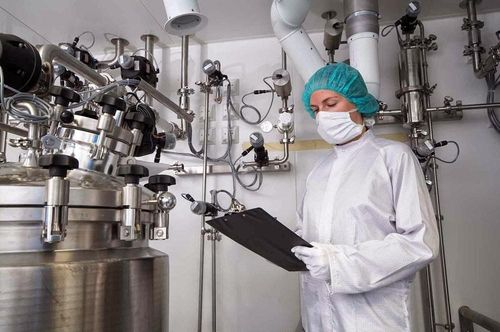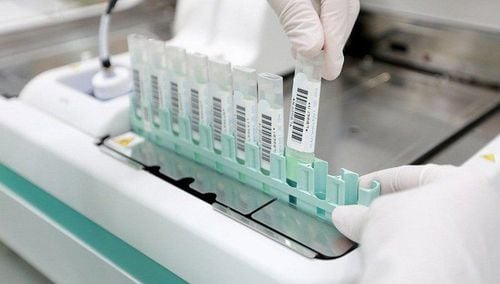This is an automatically translated article.
In Vietnam, when it comes to cancer clinical trials, it may be quite strange, because they are not as popular as developed countries in the world. So what is a cancer clinical trial, what is it for, and what are the latest cancer researches available today?
1. What is an anti-cancer clinical trial?
Clinical trials are generally a type of study that tests how well new medical approaches work in people. These studies test new methods of screening, prevention, diagnosis, or treatment of disease that result in greater treatment outcomes and better quality of life for patients.
Anti-cancer clinical trials are clinical trials that study cancer. These latest cancer studies are designed to test things like:
Treating cancer Finding and diagnosing cancer Preventing cancer Managing cancer symptoms and side effects in its treatment A clinical trial is the final step in a long process that begins with laboratory research. Before any new treatment is used on people in cancer clinical trials, researchers have been working for years to understand its effects on cancer cells in the laboratory. experiments and on animals. They also try to figure out the side effects it can cause.
2. Who organizes the cancer clinical trial and how is it done?
Cancer clinical trials may be funded by pharmaceutical companies, academic medical centers, volunteer groups, and other organizations, in addition to Federal agencies such as the National Institutes of Health, The United States Department of Defense and the United States Department of Veterans Affairs. Doctors, individuals, and other health care providers can also fund clinical research.
Each clinical trial has a lead investigator, usually a doctor, who is called the principal investigator. There may also be doctors, nurses, social workers, other health care professionals.
The principal investigator prepares a plan for the clinical trial called a protocol. The protocol explains what will be done during testing. It also contains information to help your doctor decide if this treatment is right for you. The protocol includes information about:
Reasons for doing the trial Who can participate in the trial (called "eligibility criteria") How many people are needed for the clinical trial Any drug or treatment what other treatments will be used, how they will be used, dose and frequency What medical tests will be done and how often What types of information will be collected about participants
3. Why are cancer clinical trials important?
Today, people are living longer thanks to successful cancer treatments as a result of past clinical trials. Through clinical trials, doctors determine whether the latest research on cancer treatment is safe, effective, and works better than current treatments. Clinical trials also help us find new ways to prevent and detect cancer. And they help researchers and healthcare professionals improve the quality of life for people during and after treatment. When you participate in a clinical trial, you add to your healthcare provider's knowledge about cancer and help improve cancer care for future patients. Clinical trials are key to making progress against cancer.
Watch now: Clinical trials: A guide for patients
4. Where can I find cancer clinical trials?
Any time you or a loved one need treatment for cancer, an anti-cancer clinical trial is an option to think about. Tests are available for all stages of cancer. Some people think they are only for patients with terminal cancer who are not responding to treatment and are reluctant to participate in clinical trials. This is simply wrong. Cancer patients participating in clinical trials will receive the most effective therapies available or cancer treatments that are being evaluated for future use. These cancer treatments can be even more effective than current ones. The only way to determine if a newer treatment is better than an existing treatment is to join a clinical trial.
You can ask your doctor about clinical trials or find information and services about the cancer clinical trial that is right for you on websites such as:
TrialCheck: This website, developed Developed by the Alliance of Nonprofit Cancer Organizations, it allows patients to search for cancer trials based on disease and location. It has now been merged with a cancer decision support platform called eviti, which contains treatment guidelines. National cancer institute: This website lists thousands of cancer clinical trials, describes them, outlines their eligibility criteria, and explains what to do when you find one you think might be a good fit. me. ClinicalTrials.gov: This website provides up-to-date information to locate private and federally supported clinical trials for cancer in the United States and around the world. CenterWatch: This website lists industry-funded clinical trials that are actively advocating for patients. We hope the information in this article helps you better understand cancer clinical trials. Hopefully in the future, the world's medicine will research and successfully test cancer therapies to improve the health and best quality of life for people with the disease.
Follow Vinmec International General Hospital website to get more health, nutrition and beauty information to protect the health of yourself and your loved ones in your family.
Please dial HOTLINE for more information or register for an appointment HERE. Download MyVinmec app to make appointments faster and to manage your bookings easily.
Reference source: webmd.com












